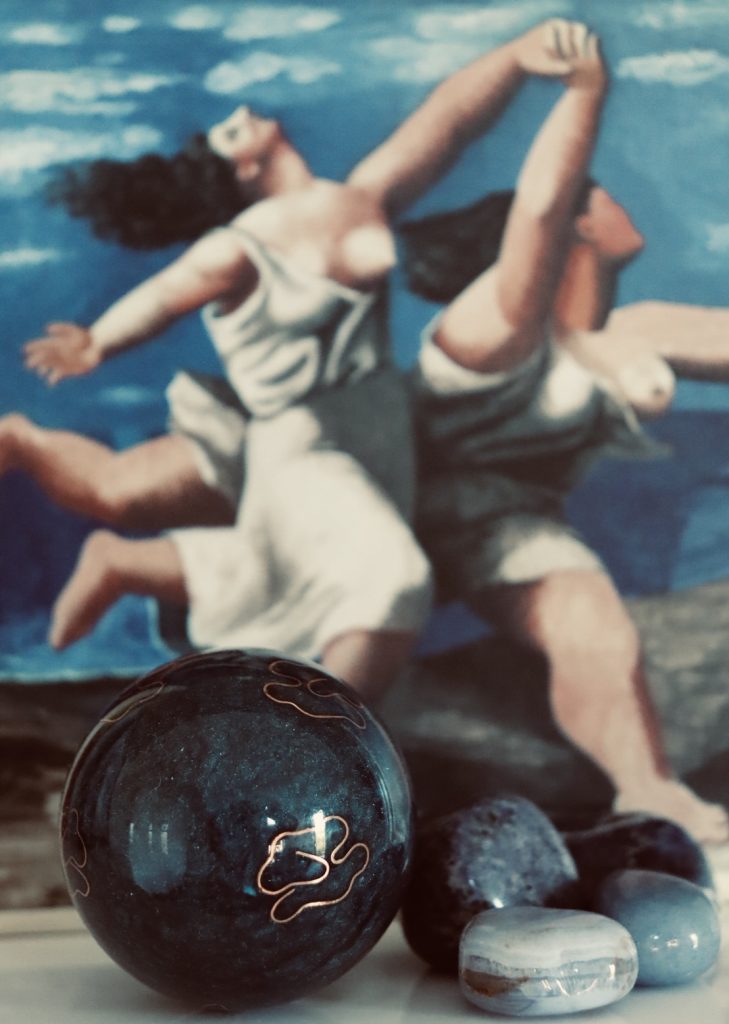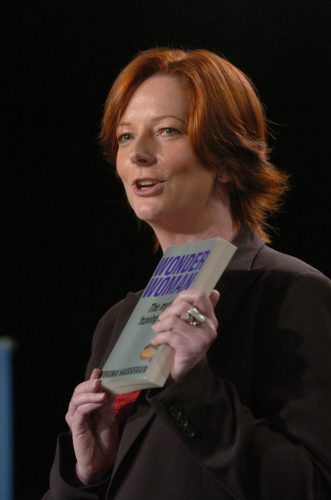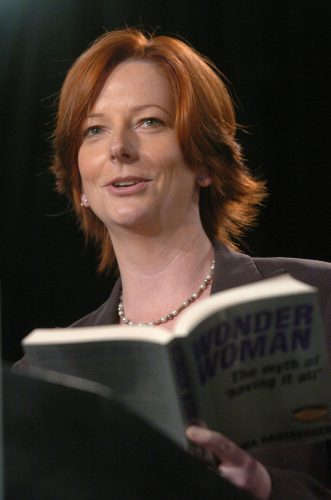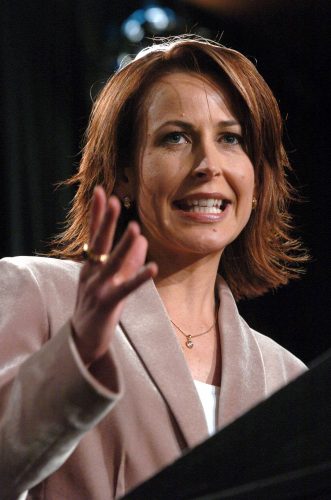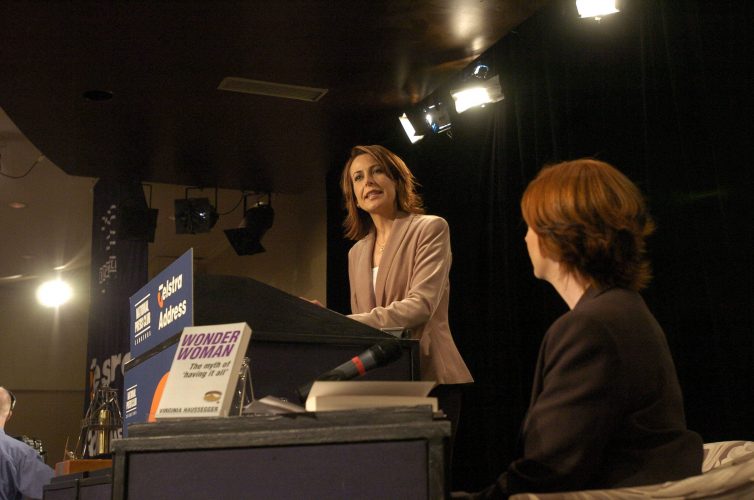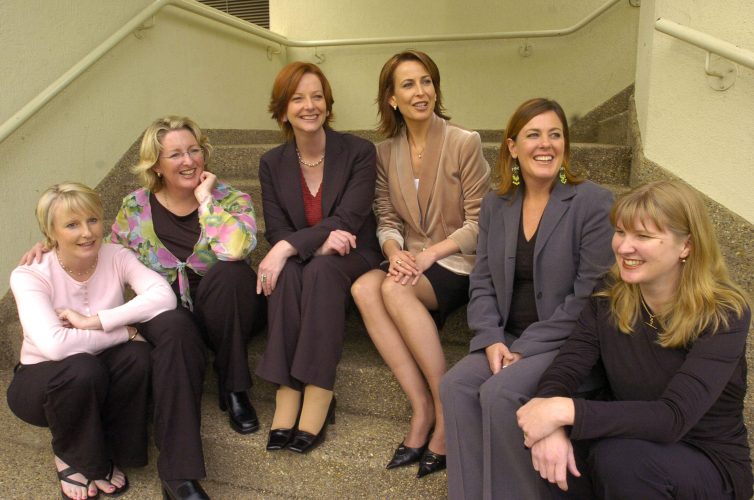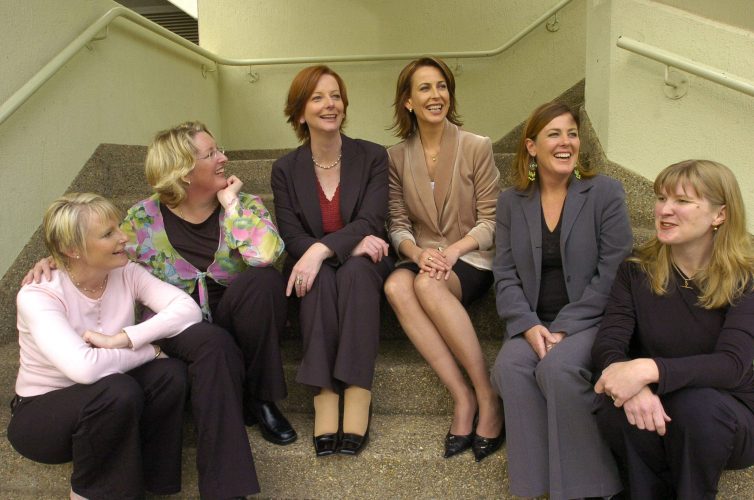Rugby league is the most tactile game on Earth. Men fly through the air to belly flop on top of other men. They hug and grab flesh; fling arms around hips; thrust their face against another man’s groin. They grunt, pull and poke at each other’s bodies. Then nosedive into their opponents’ buttocks.
Later, when the play is over, the victors hug and kiss. Big, beefy shoulders lock onto others as they slap backs, and pummel flesh some more. Once inside the club-room most can’t wait to strip off their shirts, flex those rippling muscles, well-oiled with sweat, and huddle together to sing, clap and beat out a tuneless tribal chant.
When the slapping and clapping is over, and the group panting has stopped, they’ll all take a shower together. Still smiling, some will even urinate together. Then, they preen together.
There’s plenty of preening in rugby league. Hair and skin products, even perfume products, rattle around in those big bags. And why not? These men are acutely aware of their star power. They’re shiny, strong and sexy. They feel good, and boy do they love to look good.
Then for days after each win, we will hear endless media discussion about groin injuries, shoulder strains and Achilles pain, as the players’ body parts are afforded celebrity status. Frankly, I find it embarrassing to make mention of a man’s groin, injured or otherwise. But in the context of men’s sport, groins are apparently serious public business. Which is odd really, given we’re talking about a young man’s nether regions.
But I guess that’s the point. There really isn’t any need for coy privacy when it comes to rugby league players. Those pumped-up bodies are their instrument, and they are fully focused on how every part of it is working, looking and performing.
It’s stating the obvious to say that rugby league is intensely physical. However, what’s also obvious – but never stated – is how much the game fosters a culture of homoeroticism.
Matthew Johns regrets the group sex that took place with his Cronulla Sharks mates on that fateful February night in New Zealand seven years ago. But it’s not the sharing of sex, the nudity, the erections and masturbation in front of one another that he regrets. It’s just that the only female at the party – then a 19-year-old girl – has gone public and complained. Now, caught out, Johns regrets the “anguish” and “embarrassment” it has caused his wife and family.
Far from expressing any embarrassment about a group “gang- bang” – with a dozen aroused males – and the homoeroticism implicit in that kind of activity, Johns has defended it. “At no point did she object to what was going on,” he insisted this week. His defence has always been that the sex was consensual.
Listening to “Clare” on Monday’s Four Corners program, it’s abundantly clear to me that while young, drunk and dreadfully foolish, she hated every moment of a situation that quickly spiralled well beyond her control. While the men paraded their nakedness, joked, laughed, drank and took turns at her body, not one of them spoke to her. “I was nothing,” she said.
Indeed, that’s true. She was incidental to the fun and laughter. This party, where most of the boys dropped their pants, wasn’t about the girl. It was about them. Clare says that at one point two of the males were rubbing their penises against her face at the same time, while another was “doing things” elsewhere on her body.
What other code of sport not only enjoys watching each other get aroused and ejaculate, but considers it some kind of sporting right?
While most rugby league players are refusing to talk about the practice of group sex, one unnamed player shot back on Thursday, telling The Sydney Morning Herald that his colleagues were “stunned by [NRL chief] Gallop’s hardline stance” against group sex sessions. “We already have so many rules,” the nameless player complained. “I don’t know how a chief executive can come out and say we can’t have group sex if it’s consensual.”
But the issue of consent seems deeply confounding for some players. The same nameless bloke suggests that being “polite” to the girl after a gang-bang with your mates, and paying for her cab fare home means “you usually don’t have any problems”.
The NRL clearly has a big problem. But it’s known that for years, which is why it introduced gender awareness programs for players over four years ago. The fact that those programs don’t seem to be changing the culture isn’t a fault of the programs. Rather the fault lies with the code’s inability to understand that the game itself fosters a physical narcissism, which for some players may develop into homoerotic tendencies.
A delight in group sex is not new. The ancient Romans were doing it. But why rugby league players want to engage in this kind of sex – when most modern heterosexual men wouldn’t dream of doing it – is something the NRL needs to take a hard look at.
An erotic fascination with watching your team mates in the intimate act of sex suggests a fondness that goes well beyond the playing field.
